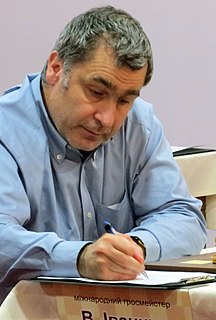A Quote by Nigel Short
Chess is, in essence, a game for children. Computers have exacerbated the trends towards youth because they now have an immensely powerful tool at their disposal and can absorb vast amounts of information extremely quickly.
Related Quotes
When you look at things like social media, that's an immensely powerful tool that I'm all in favor of. I think it's amazing. It's a powerful tool, and it's one that we're, as a species, still grappling with learning to use. It's like we've grown an extra tail and we inadvertently lash out and knock over all of the furniture.
I started playing chess when I was about 4 or 5 years old. It is very good for children to learn to play chess, because it helps them to develop their mental abilities. It also helps to consolidate a person's character, because as it happens both in life and in a chess game we have to make decisions constantly. In chess there is no luck and no excuses: everything is in your hands.
But the thing that was great about Capablanca was that he really spoke his mind, he said what he believed was true, he said what he felt. He [Capablanca] wanted to change the rules [of chess] already, back in the twenties, because he said chess was getting played out. He was right. Now chess is completely dead. It is all just memorisation and prearrangement. It's a terrible game now. Very uncreative.
It's a very special generation, because during our careers the computer entered chess. So we know how to play without computers, which is also important. We can analyse without computers. I am not saying that younger players cannot do this, but we are more in the habit of doing this. That's important to improve your chess understanding.
With both people and computers on the job, computer error can be more quickly tracked down and corrected by people and, conversely, human error can be more quickly corrected by computers. What it amounts to is that nothing serious can happen unless human error and computer error take place simultaneously. And that hardly ever happens.
Right up till the 1980s, SF envisioned giant mainframe computers that ran everything remotely, that ingested huge amounts of information and regurgitated it in startling ways, and that behaved (or were programmed to behave) very much like human beings... Now we have 14-year-olds with more computing power on their desktops than existed in the entire world in 1960. But computers in fiction are still behaving in much the same way as they did in the Sixties. That's because in fiction [artificial intelligence] has to follow the laws of dramatic logic, just like human characters.
































